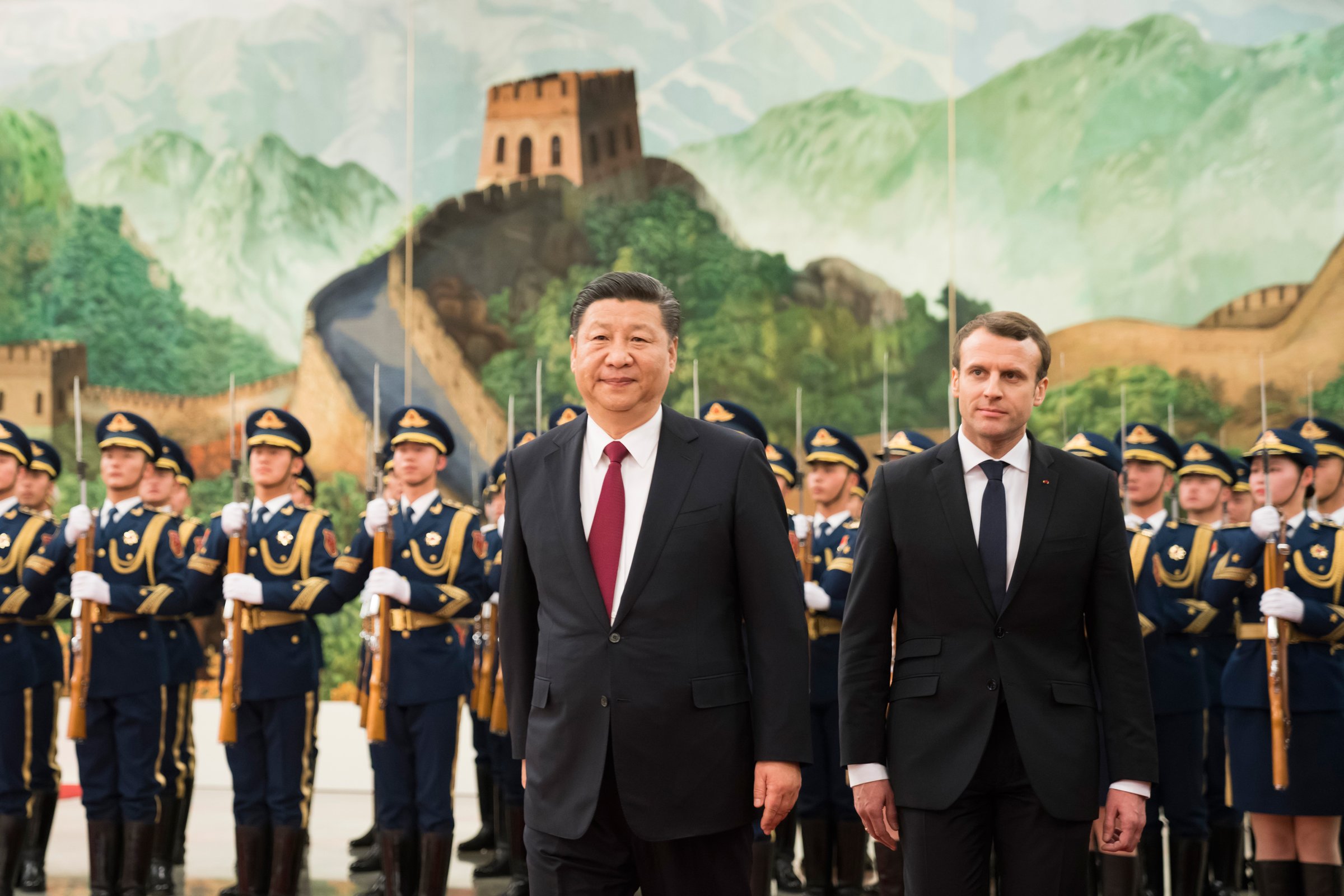
Emmanuel Macron arrived in Beijing this month with the gift of a horse from his cavalry corps for his counterpart Xi Jinping. It was a gallant gesture of respect, though one French official conceded the operation was “very complicated … for sanitary reasons.” During his three-day visit, France’s youthful President paid due respect to what he called the world’s “oldest living civilization.”
But Macron had another message for his hosts. “I came here to tell China my determination to get the Europe-China partnership into the 21st century,” he said. It seems Donald Trump is not the only President who sees that China and its companies don’t always play by Western rules, particularly on respect for intellectual property.
China invests more in Europe than in the U.S., for several reasons. First, Chinese firms believe the E.U. offers a diversity of opportunities. If one member state drives a hard bargain on investment rules, China enters the European market through another. In the U.S., federal rules limit opportunities to play one state or city off another.
Investors in the U.S. can also face scrutiny from the Committee on Foreign Investment in the U.S. (CFIUS), the federal body empowered to determine whether deals with foreign companies raise antitrust or national-security concerns. CFIUS devotes special attention to state-owned firms, particularly from China.
Europeans are starting to see value in the CFIUS approach. In 2016, Germany’s Economics Ministry withdrew approval for a deal that would have allowed a Chinese investment fund to buy a German computer-chip equipment maker. Soon after, Germany became the first E.U. member to tighten rules on foreign corporate takeovers, fearing China was gaining access to Western technology while protecting its own companies from foreign competition.
As a candidate and now as President, Macron has positioned the E.U. as a vehicle that can boost French interests, but he also talks of “protective Europe.” Don’t be surprised if we see a CFIUS-style E.U.-wide investment committee that could put hurdles in front of Chinese state-backed investment in European companies. Smaller E.U. member states might still prefer to cut their own deals with China, but Macron means to ensure that China must deal with the E.U. and its rules.
The French President knows that China offers tremendous opportunities for France and for Europe. But during a speech on Jan. 8, he noted that “the ancient Silk Roads were never just Chinese … New roads cannot go just one way.” Macron is no protectionist, but gallant gestures aside, he knows he must insist that China play fair.
More Must-Reads from TIME
- Donald Trump Is TIME's 2024 Person of the Year
- TIME’s Top 10 Photos of 2024
- Why Gen Z Is Drinking Less
- The Best Movies About Cooking
- Why Is Anxiety Worse at Night?
- A Head-to-Toe Guide to Treating Dry Skin
- Why Street Cats Are Taking Over Urban Neighborhoods
- Column: Jimmy Carter’s Global Legacy Was Moral Clarity
Contact us at letters@time.com